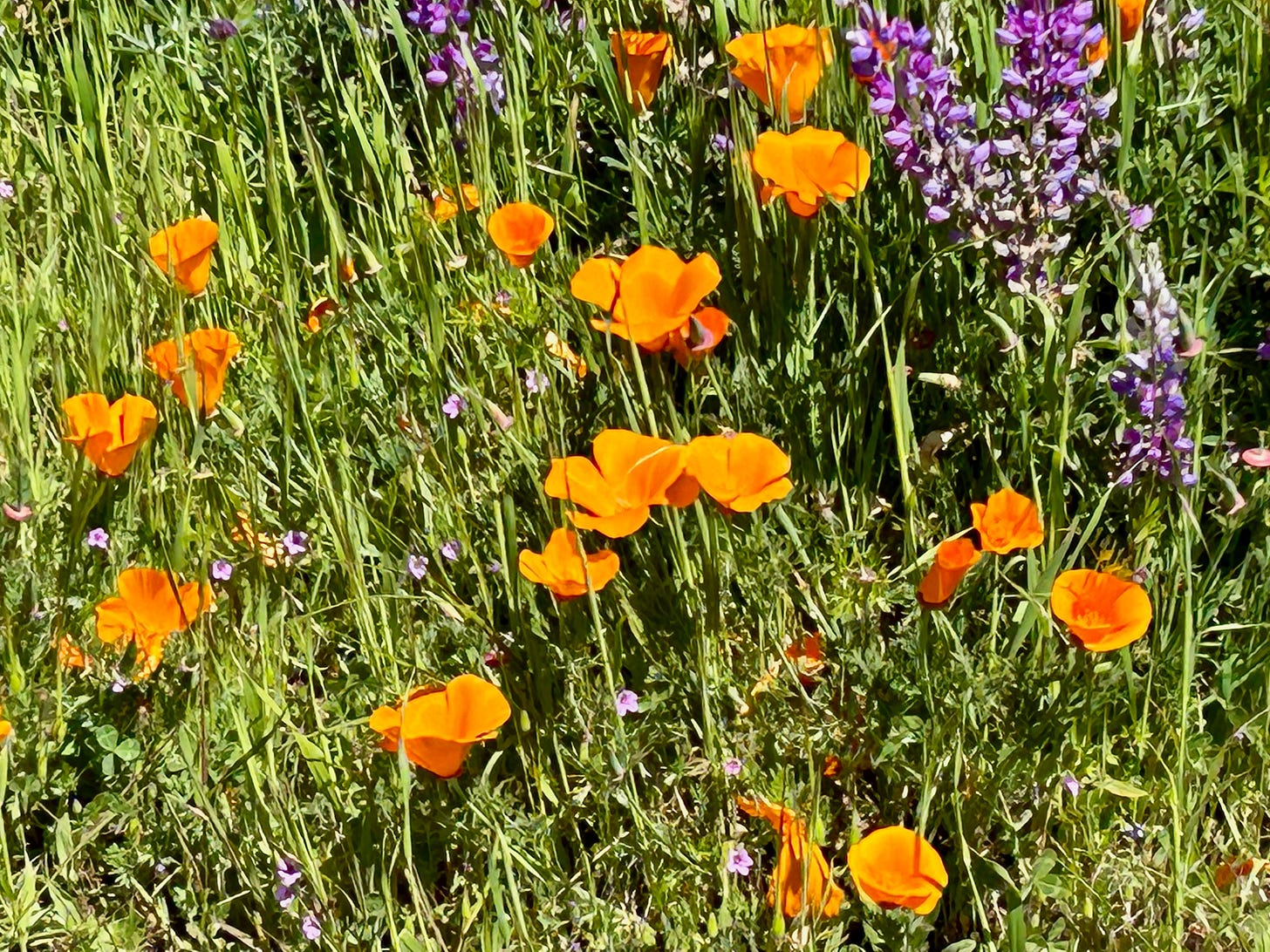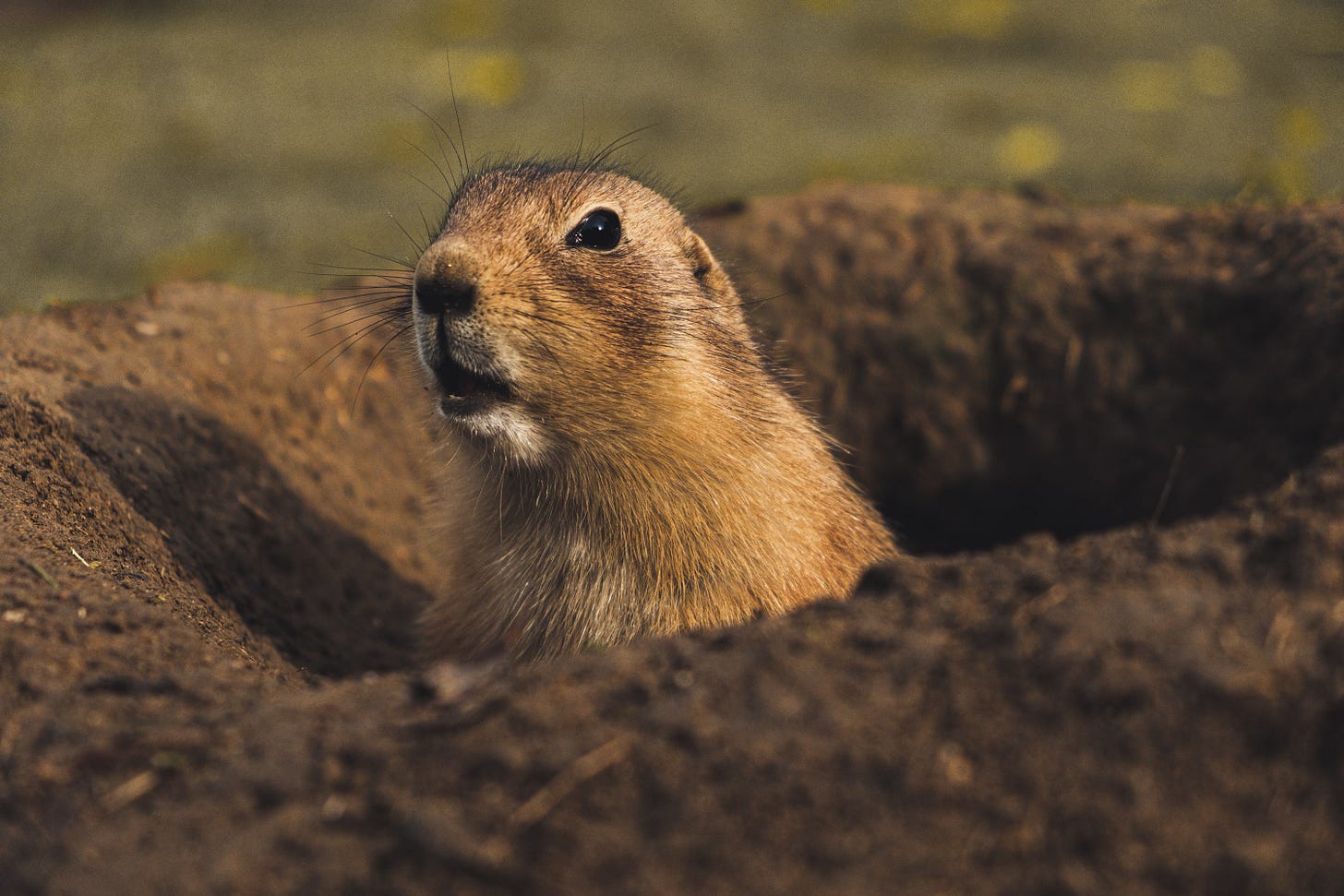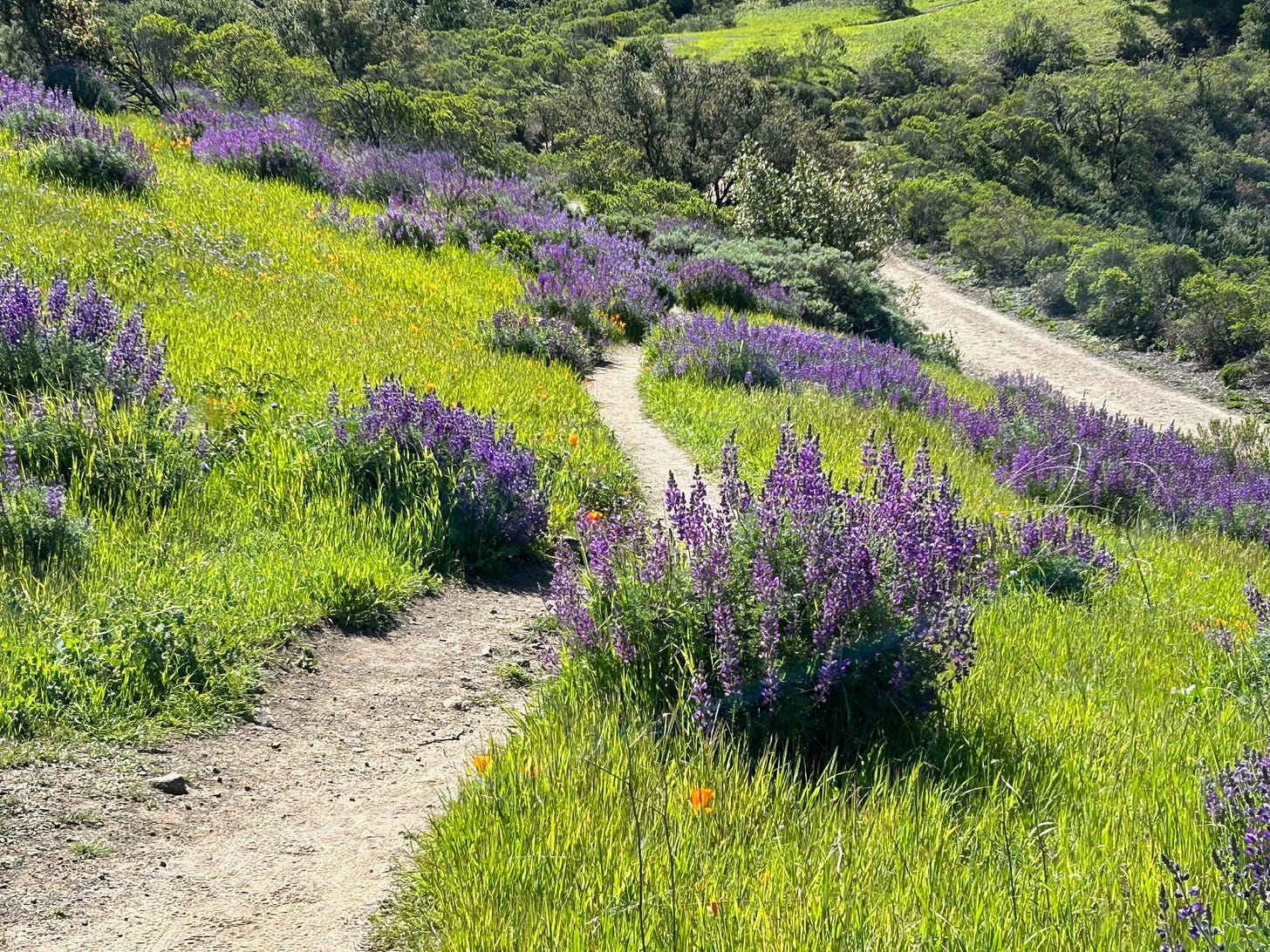
“Nature is not a place to visit. It is home.”
— Gary Snyder
When I was a child, I distressed my Italian grandmother by insisting that humans are animals. Nonna’s strict Catholic worldview would not tolerate such heresy.
She wasn’t much happier with my observation that we didn’t encounter any angels among the clouds when we flew to Italy to visit her. But I might possibly have been willing to allow that there was something about angels that made them invisible to plane travelers. The fact that we’re animals, though, seemed beyond dispute.
Yet it’s been disputed. A lot.
Why do we humans have such a hard time with this concept? How did we get so removed from our own nature?
Humans versus nature
We have a long history in Western culture of setting ourselves apart from the rest of nature. Our organized religions have promoted the idea that we’re separate and superior, and our way of life has supported that perspective. We build concrete jungles that remove us from plants and animals — and encroach on their territories. We try to tame and control nature. We spend too much time in our minds and become removed from our bodies. We forget that our mind and our body are one.
And we constantly look for what sets us apart from other animals.
For a while it was tool-making. Then we learned that many other animals also use tools, including some fellow mammals as well as reptiles, insects, spiders, birds, fish, cephalopods, cetaceans, and crustaceans.
But animals don’t have language, of course! Except they do. The killer whale, organgutan, and free-tailed bat, among others, may communicate using some kind of language. Prairie dogs seem to have a language complete with nouns, adverbs, and adjectives, used mostly to warn one another about predators. Some people think AI might soon allow us to decode animal language and communicate with them.

These findings and assertions are much debated and depend in part on how we define language. But a more relevant question than whether other animals have language might be, Why are humans so invested in proving we’re the only animals with language?
It’s the same story with morality and culture, other things we tend to think make humans different — aka, superior. As it turns out, many mammals, fish, birds, and insects have culture in various forms. Elephants, giraffes, and dolphins grieve, and elephants even bury their dead. Elephants also show empathy, as do bonobos, pigs, and rats. We’ve all heard stories of dolphins putting empathy into action by rescuing humans. Monkeys have a strong and unwavering sense of fairness, as you can see in this hilarious short video:
The experiment is kind of mean, but I can’t help cracking up every time I watch it.
We are all related — duh!
What does all the evidence tell us?
Science is not finding that we’re exactly the same as other animals; humans do have some unique characteristics, just as other animals do. Humans’ propensity to trash the Earth certainly sets us apart. But we’re not as different as we often think, and we can see that when we stop to really look. Personal observations of nature (even of our pets) make this clear. If that’s not enough for you, new scientific shit keeps coming to light that shatters our prior assumptions, revealing how much we have in common with other animals — and even with plants.
That’s not surprising, given that we share over 98% of our genes with bonobos and chimps, 90% with the Abyssinian house cat, 85% with mice, 80% with cows, and 61% with fruit flies — not to mention 50%–60% with bananas. (Although genes make up only 2% of our DNA; we share just 1% of our DNA with bananas. Don’t ask me to explain it, because this was news to me and I probably need to read the article at that link a few more times.)
All the findings I’ve described here simply provide the scientific explanation for what Indigenous cultures have long recognized: that we are all related. We are all part of the same living family.
Feeling that connection with all of nature makes us more likely to strive to preserve the natural environment and its inhabitants. It makes us more likely to treat animals well. It also benefits us humans directly with cognitive enhancements, lowered stress, and improved health. But it can do much more for us. Feeling one with the rest of nature in deep connection is a spiritual experience that can transform our lives. But most of us only get occasional glimpses of this reality.
Remembering that we are nature
With so many humans living in cities, it’s all too easy to forget we’re part of nature. How can find ways to remember?
Sometimes just having a pet can provide a small reminder. Cats, in particular, remain wonderfully wild despite how comfortable they are living in our homes — yet they have personalities, like we do, likes and dislikes, like we do, positive and negative behavior, like we do. We can see ourselves in them and enjoy their wild natures at the same time.
Our cities have wild things roaming through them, which we can stop to appreciate — if we get out of our cars. Some of us are lucky to live in cities with easy access to wild spaces, and we can make it a priority to get out in them.
But nature is not a place to visit. As great as it is to get out of the city and see more plants and animals, we need to see nature wherever we are. We need to see nature in ourselves.
Some cultures do this. Jeremy Narby, an anthropologist who’s spent time living with the Asháninka people in the Peruvian Amazon, points out that they don’t even have a word for nature: “You go to the Amazon and ask people there how they say ‘everything that is not human,’ they say, ‘No, we think plants and animals are people like us. We don’t have this idea — everything that is not human.’”
Indigenous people living in the Amazon have more prominent daily reminders of our connection with nature than those of us living in modern cities. We have to make more of an effort, but it’s well worth doing. Even the Asháninka have guidance, in the form of shamans and ayahuasca. We can seek this kind of help, or we can find it in other forms: poetry, music, art, religion, meditation. However we get there, it’s critical for all of us — and for our world — to get regular reminders of our connection to all of nature.





Hi Rosana, As you’re aware I’ve recently subscribed and I’m enjoying your writing. While reading this post, which I agree with wholeheartedly, I thought of this article I read in The Guardian a few days ago. I’d like to share it with you – here’s the link...
https://www.theguardian.com/environment/2023/apr/15/scientist-stefano-mancuso-you-can-anaesthetise-all-plants-this-is-extremely-fascinating-tree-stories?CMP=Share_iOSApp_Other
☮️💟 from Sydney, Australia
What a post! And what is our prognosis? Humans may be denying nature with a cost called extinction to be paid. By us. And why? Human hubris. (Sorry for the downer of a comment). Still, as fine an essay as I’ve ever read on the subject.